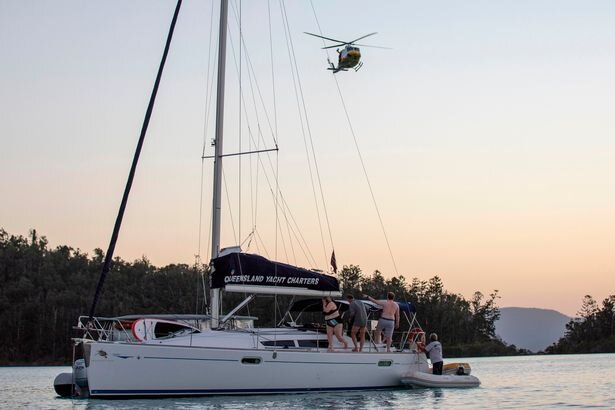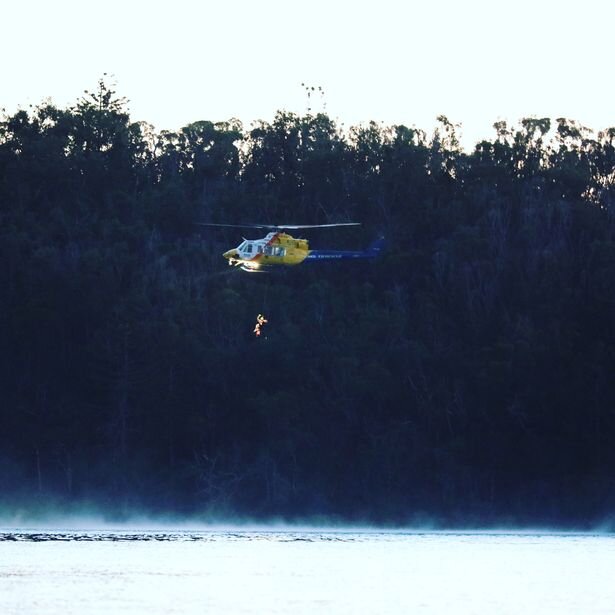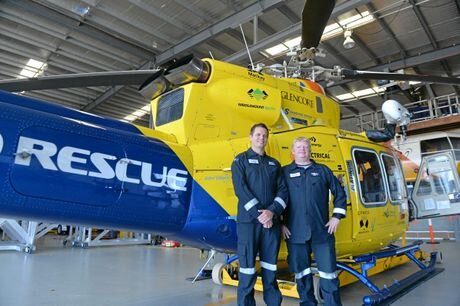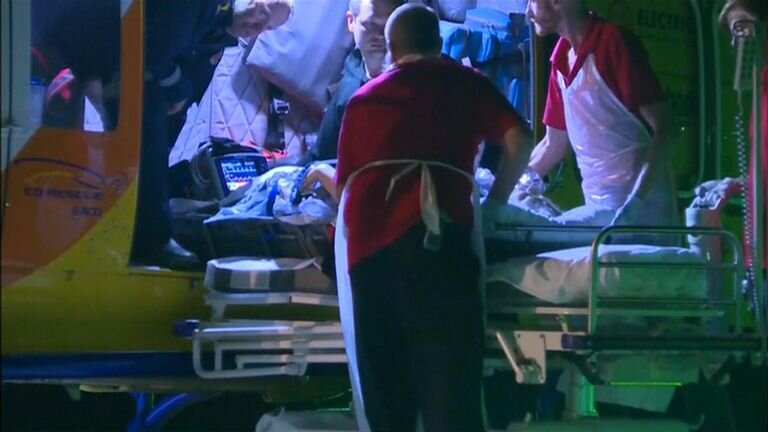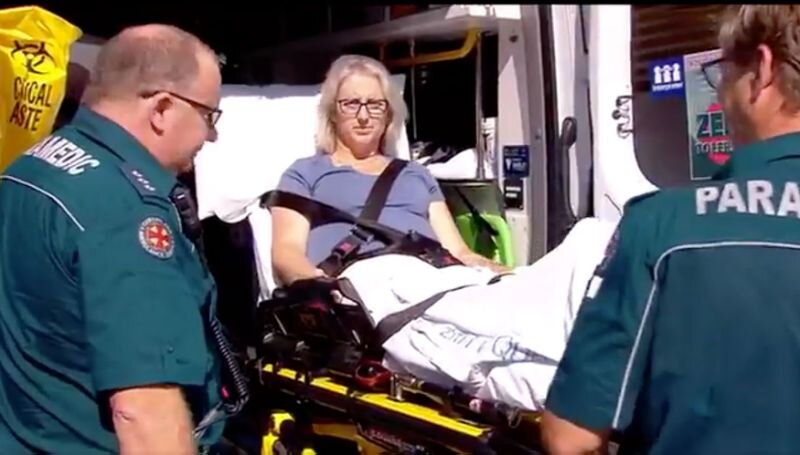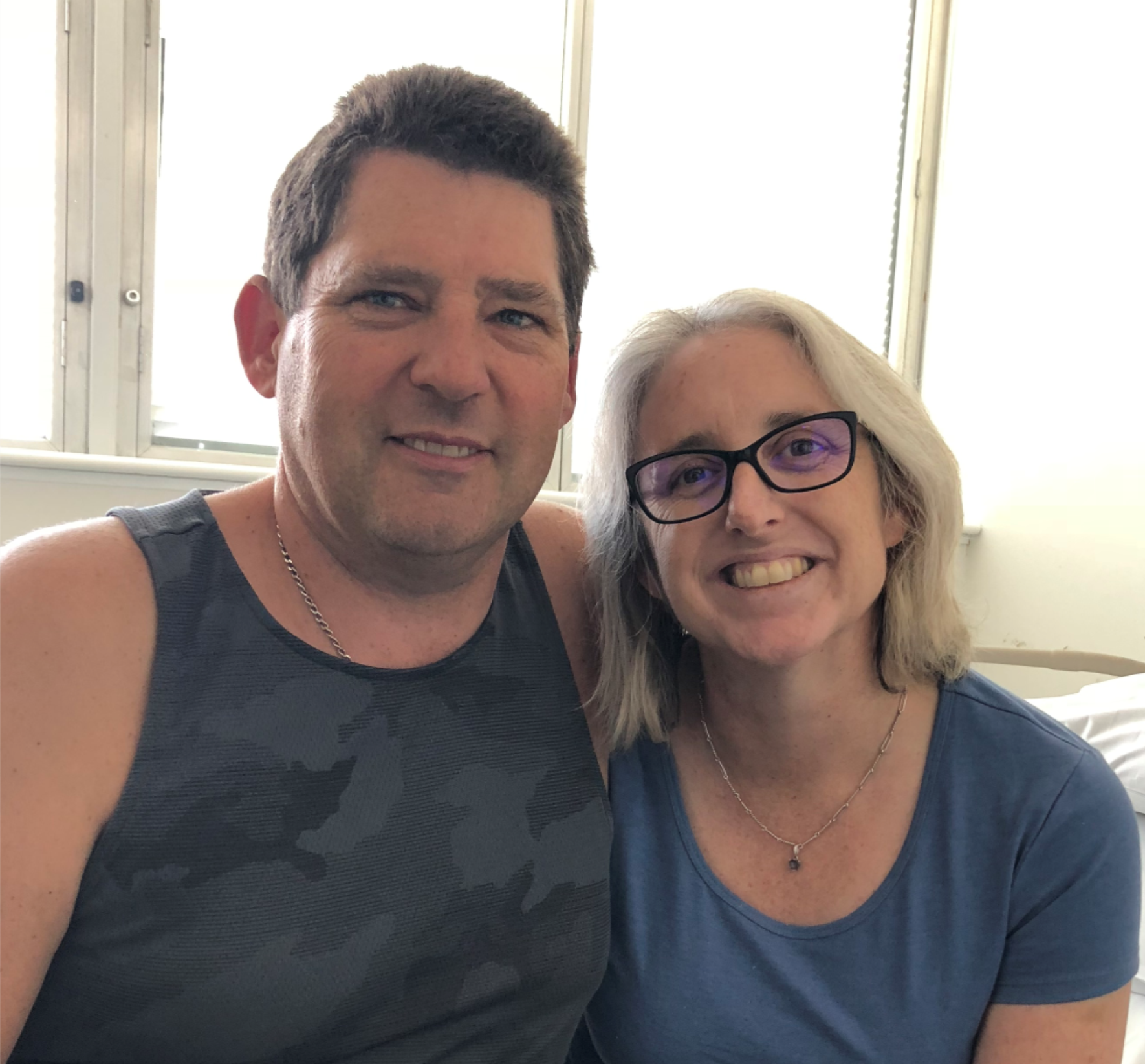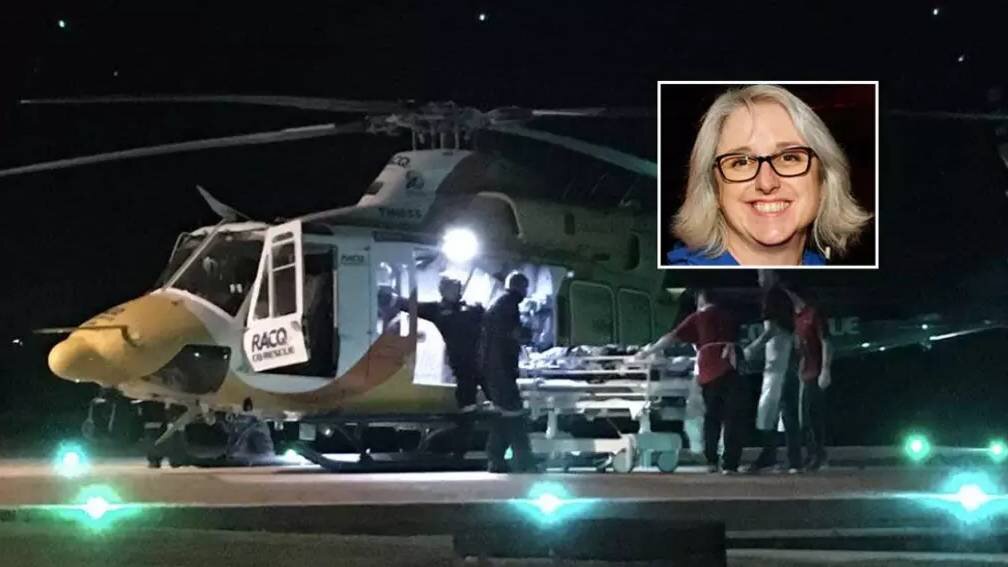Forever Grateful To Rescue Crew
Justine Barwick had enjoyed a beautiful day at stunning Whitehaven Beach in the Whitsundays and was taking a refreshing swim in the cool waters of Cid Harbour when her life changed forever.
Only minutes later she lay helplessly bleeding on a boat, a huge chunk bitten from her right thigh by a shark, facing the possibility that she was going to die.
The 46-year-old Tasmanian was holidaying in the Whitsundays with her husband of 26 years, Craig, friend Lynne Moran and another couple. It was their sixth year escaping a Tasmanian winter to relax and enjoy the Whitsundays with family and friends.
“The weather the following day was not meant to be so great, so we decided to sail to Cid Harbour to wait it out,” Justine said.
“Cid Harbour is a great all-weather anchorage and we had a day or so of chilling out planned while we waited for the weather to improve. Lynne and I decided to go for a swim about an hour before sunset to freshen up. Lynne was already in and I dived into the water a few metres from where she was.”
From the deep, horror-struck.
“I knew immediately what it was,” Justine said.
“I struggle to describe the force of it. It was like being slammed into, but even this doesn’t describe it accurately. Apparently, I yelled ‘Get it off me’, but I do remember pushing the shark away. I remember seeing my hands pushing it away – seeing my hands on the shark’s skin and splashes of water. ”
“I then remember swimming as fast as I could back to the boat.” Incredibly, despite her horrific injury and profuse bleeding, Justine managed to get herself back on board the boat. “I was confused as to why my right leg wouldn’t work as I came up the ladder” Justine said.
Both Craig and Lynne realized immediately that Justine was in very serious trouble. Her husband grabbed a towel and put it straight on the bite wound to start applying pressure. He raised her leg and put another towel over the top while Lynne went to work bandaging.
The pair took turns making sure that Justine was still conscious, but it was at that moment Craig realised it was possible he might lose his wife.
“I remember them working quickly but not panicking and communicating really clearly with each other. I remember thinking that remaining calm was the only thing that I could do to help. I have done yoga and pilates for many years, so decided to watch my breath and use that to help me to stay calm” Justine said.
When an emergency call for help was put out across the marine radio channel, a doctor and former rescue helicopter crewman John Hadok responded. He was on a nearby vessel and quickly made his way to assist Justine.
“I remember that when he came on board he spoke to Craig and Lynne first and then spoke to me. I remember being strangely comforted by his honest assessment of how serious my injury was after I had asked him if I was going to die,” Justine said.
“He also told me that Craig and Lynne had done excellent first aid and that it was time to make a plan to get me off the boat. I don’t remember the pain, but John tells me that I quietly told him that the pain was terrible. I don’t remember that at all.”
Dr Hadok later spoke of the incident recalling: "I quickly had to weigh up in that moment what I thought her chances of survival were, and they weren’t good, but they were there.”
RACQ CQ Rescue helicopter crewman Ben McCauley said the Mackay-based rescue helicopter was already close by on a beacon search at Proserpine when they were tasked to assist about 5pm. They flew direct to Whitsunday Island in about 15 minutes.
Justine was aboard a 39-foot yacht bleeding profusely with barely a pulse.
“The shark had taken a huge chunk out of her inside leg and she was bleeding out,” Mr McCauley said.
“Her husband and friend on board had quickly packed the gaping wound to help stem the haemorrhaging and this undoubtedly saved her life.”
RACQ CQ Rescue, with a Critical Care Paramedic on board, orbited the area and made contact with the vessel before making preparations to conduct a winch rescue of the patient. There were about 30 boats in the popular anchorage, some only about 30 metres away from each other.
The mast and the fact that the vessel had no open deck area prevented the winch from occurring off the boat, so Justine, Dr Hadok and her husband Craig had to be put into a dinghy and repositioned about 100 metres from the yacht.
Ben was then winched down out of the helicopter into the water and had to swim to the dinghy and climb on board. Justine was secured into an ARV (Air Rescue Vest) and was winched up with the rescue crewman into the helicopter to be treated by the critical care paramedic. The winch was completed within 20 minutes.
“I do remember being lifted into the dinghy. I remember Lynne holding my head as I was lifted and I remember being aware that she needed to stay with the yacht. I remember being comforted by the fact that John was with me, but also that Craig was with me and driving the dinghy.”
“I remember Ben coming down on the wire, and Ben, John and Craig working to get me into a sling. I don’t remember being winched up, other than just knowing that I knew that I had to put all my faith and confidence in Ben and just do what he told me to.
“I do remember arriving in the helicopter. It’s one of the most surreal moments of my life – so many people working to help me, all in helicopter gear. This is when I first remember pain. I asked the crew to take the pain away. I must have been squirming because I remember one of them telling me to lay still because they were trying help with the pain.”
The rescue helicopter, with Justine on board in a very serious condition, then flew direct to Proserpine Airport to refuel. The helicopter was met by paramedics who delivered blood and further pain relief.
“Given how serious Justine’s injuries were and how far from shore and from medical help they were, without the rescue helicopter I don’t think she would have made it back to the mainland alive. She really was incredibly lucky.” Ben said.
Justine arrived at Mackay Base Hospital just after 8pm where she underwent emergency surgery. She was sent to Brisbane the next day for an 18-hour vascular surgery to reconstruct her leg. On September 24 she was finally able to speak to her husband Craig for the first time since the attack.
“In typical Justine fashion her first words to me were ‘sorry I have caused so much trouble’ and she was asking after the welfare of family and friends,” Craig said.
Justine remained in hospital until October 5 and was then transferred to Tasmania where she spent three weeks as an inpatient at an acute rehab unit. She was discharged at the end of October but still attends rehab as an outpatient. She is hopeful she won’t need any further surgery although her rehabilitation is ongoing.
Justine describes her journey as “surreal” but she surprisingly feels incredibly “grateful”.
“I think that I will recover emotionally, and I truly think that I am doing as well as anyone could do after something like this,” she said. “I have achieved things I never thought I would be able to or have to. I surprise myself sometimes, but it’s a journey that I would not wish on anyone.”
Her passion for the Whitsundays remains strong despite her ordeal.
“It’s a beautiful part of the world and I really hope that I do get to go back. I miss it already but know that I’m not ready to go back just yet.”
Justine is adamant that the Mackay-based rescue helicopter made an enormous difference that fateful day.
“The RACQ CQ Rescue helicopter is the reason that I’m here today,” she said. “We were very well prepared sailors, but I really don’t think that any preparation is sufficient to deal with the situation we found ourselves in without specialist intervention,” she said.
“I am so lucky. I know now that the helicopter was in the area for a search for a discarded EPIRB. I am just so lucky that this was the case. The availability of the helicopter and professionalism of the crew are a big part of the reason I am here today.
“Our family will forever be thankful to the crew for their work that day.”
Justine Barwick

